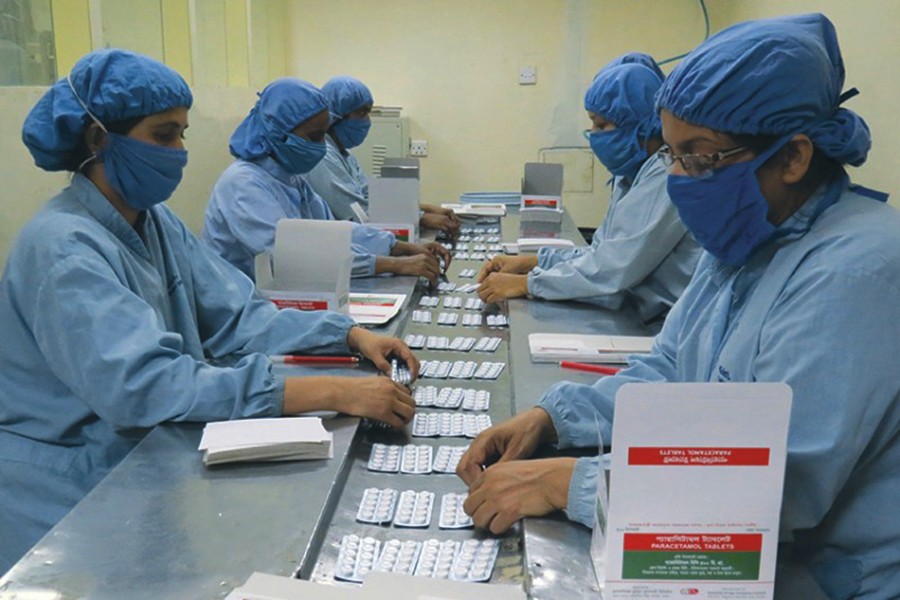
Published :
Updated :

Bangladesh has failed to take advantage of China's removal of tariffs on 28 categories of imported drugs including all cancer medicines, although the country is doing well in terms of exports of pharmaceutical products.
Industry insiders said it is not an easy task to export pharmaceutical products to China as like as other goods.
Another reason they find that both Bangladesh and China are the competitors in the global market for pharmaceutical products.
Abdur Rouf, director (commodities) at Export Promotion Bureau (EPB), said drugs do not sell well in a new market.
"Only zero tariffs will not help raise the volume of exports of Bangladeshi pharmaceutical products to the Chinese market. There are a lot of non-tariff barriers too," he said.
Mr Rouf said pharmaceutical products need a big push to gain entry into a new market.
"It needs popularity so that physicians can trust and prescribe drugs for patients. There are also complexities in registering new products in a specific market," he added.
Chinese regulatory framework is also an impediment to gaining access of our drugs to the Chinese market.
He said the EPB has been trying to promote pharmaceutical products. "It has immense potential after readymade goods. But the main initiative has to come from the industry itself."
Bangladesh's pharmaceutical exports were more than US$ 100 million in the fiscal year 2017-18. The destination countries include United States and some European countries.
The Tk 22-billion pharmaceutical market is currently meeting 98 per cent demand of local market which was largely dependent on import until 80s.
"If developed countries import drugs from Bangladesh why not China?" Mr Rouf questioned.
Mizanur Rahman Sinha, Managing Director of ACME Laboratories Ltd, told the FE that production costs of drugs in China and Bangladesh are almost the same.
"We are competitors in many markets. So, we won't get benefit from China's zero tariffs on some drugs," he said.
M Fazlul Karim, Bangladesh ambassador to Beijing, told the FE that they are stressing the need for exporting pharmaceutical products to China. He also sees a huge potential in this market.
"Pharmaceutical products are very much expensive in China. As an LDC (least developed country), we have TRIPS (Agreement on Trade-Related Aspects of International Property Rights) waiver. Also, we can produce generic medicines cheaply," he said.
"We are looking towards this huge Chinese market. If we get cooperation from the Chinese authorities, certainly we can gain entry into the Chinese medicine market," he added.
In the face of high tariffs, multiple layers of distribution, and monopoly supply, imported drugs have been extremely expensive in China.
An increasing number of Chinese patients are forced to give up treatment at local hospitals and seek solutions from overseas black drug markets.
On May 01 in 2018, China eliminated the tariff on 28 categories of imported drugs to address this problem.
After the announcement, import tariffs on all common drugs in China including cancer drugs, cancer alkaloid-based drugs, and imported traditional Chinese medicines were exempted.
Value Added Tax (VAT) on the production and import of drugs dropped by a large margin.
Approval to export of both oral and injectable drugs in China is a lengthy process as clearance is required from China Food and Drug Administration (CFDA) which may take from two and a half years to three years, according to Chinese media reports.


 For all latest news, follow The Financial Express Google News channel.
For all latest news, follow The Financial Express Google News channel.